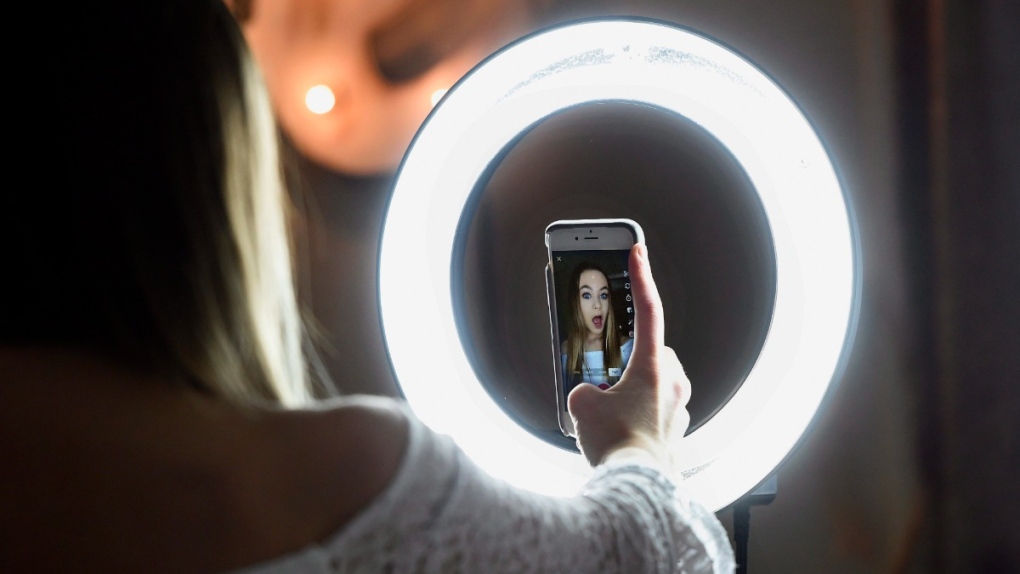
Teen girls in the United States are facing unprecedented mental health challenges, with rates of persistent sadness and hopelessness on the rise, according to a recent report from the Centers for Disease Control and Prevention. While social media is often blamed for these issues, interviews with five girls from different states reveal that there are deeper, more complex factors at play.
Amelia, a 16-year-old from Illinois, is a survivor of suicide attempt and has dealt with depression, anxiety, bullying, toxic friendships, and threats from a boy at school. She is among the 13% of high school girls in the U.S. who have attempted suicide, according to the government report. More than 1 in 10 girls in the survey also reported being forced to have sex, marking the first increase in such incidents. Sexual threats are just one of the burdens that teen girls say they face.
«We are trying to survive in a world that is out to get us,» said Amelia.
Academic pressure is another major source of stress for teen girls. Emma, an 18-year-old aspiring artist from Georgia, who has attention deficit disorder and occasional depression, expressed concerns about the pressures of academics and college. She and her friends feel exhausted from the overwhelming social issues and uncertainties about their future.
Zoey, a 15-year-old from Mississippi, raised by a strict but loving single mother who pressures her to succeed in school and life, echoed similar sentiments. She described school as nerve-racking and how it can impact mental health to a point where it may not be recognized until one is in a space of not knowing what to do. Zoey has also experienced depression due to friendship struggles and the discomfort of being the only Black student in class.
Society’s standards that place excessive focus on girls’ appearance also add to the pressure. Emma mentioned how girls’ bodies are often sexualized and the overwhelming burden of these expectations. The #MeToo movement, which started when these girls were young, has intensified during the pandemic, and they are hyperaware of uninvited sexual advances.
Girls believe that boys are less aware of these issues. They cited crass jokes, inappropriate touching, sexual threats, or actual violence as some of the challenges they face. They feel that they deserve to not be sexualized or catcalled because they are kids.
Siya, an 18-year-old from New Jersey, said that almost every girl she knows has experienced sexual harassment, which has become normalized. She also expressed how walking alone as a girl automatically puts one in a vulnerable situation, which she finds sad.
Makena, a high school senior from Mississippi, and her friends sometimes wear baggy clothes to hide their bodies, but boys still comment on their appearance. Makena has also experienced depression and therapy, and she mentioned how mental health is sometimes stigmatized in her Black community. She emphasized that it’s okay not to be okay and that expressing emotions should be encouraged.
While social media is often blamed for exacerbating mental health issues in teens, the girls interviewed also acknowledged that it can have both positive and negative impacts. They mentioned feeling pressure to be perfect when comparing themselves to others online, but also finding solace in social media influencers who talk about their own mental health challenges and make it seem okay to feel sad and vulnerable.
Dr. Hina Talib, an adolescent medicine specialist and spokesperson for the American Academy of Pediatrics, explained that historically, girls have been more likely than boys to talk about their feelings and emotions, which may partially explain why girls are disproportionately affected by depression and anxiety. Zoey also noted that boys may feel the same way but may not express it due to societal expectations of maintaining a «macho facade.»
The COVID-19 pandemic has further exacerbated these challenges for teen girls. The disruption to their daily routines, loss of social connections, increased academic pressure, and uncertainty about the future have all taken a toll on their mental health.
According to the girls interviewed, access to mental health resources has been limited, with long wait times for therapy and challenges in finding affordable or culturally competent care. They also mentioned the stigma surrounding mental health in their communities, which can make it difficult to seek help without fear of judgment or discrimination.
Experts urge for a multifaceted approach to address the mental health crisis among teen girls. This includes addressing societal pressures and expectations placed on girls, promoting mental health literacy and destigmatization, increasing access to affordable and culturally competent mental health care, and creating safe spaces for girls to express their emotions without judgment.
As the conversation around mental health continues to evolve, it is crucial to recognize the unique challenges that teen girls face and take steps to provide them with the support they need. By addressing the underlying factors contributing to their mental health struggles, we can help empower teen girls to navigate these challenges and prioritize their mental well-being. It’s time to listen to their voices, amplify their stories, and take action to support their mental health journey beyond the superficial blame on social media.